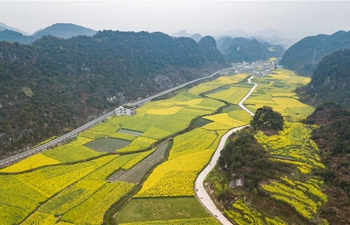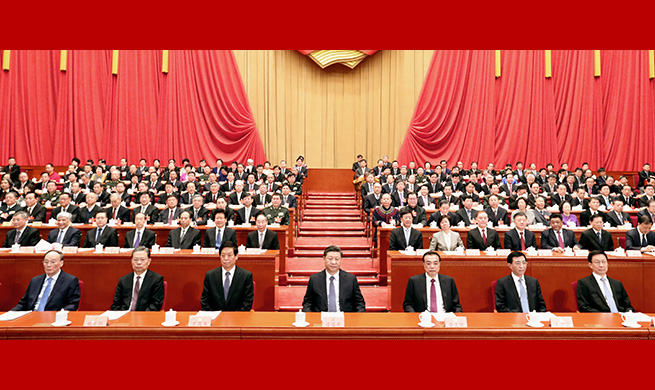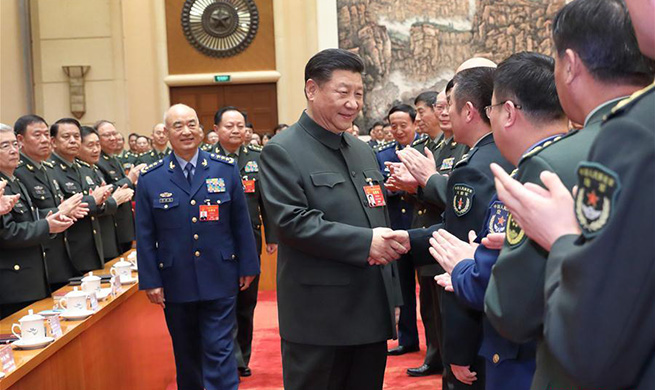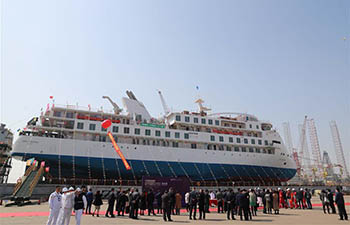by Eric J. Lyman
ROME, March 13 (Xinhua) -- Italy's indecision over the future of the high-speed TAV railway linking Turin and Lyon is damaging the country's image to potential investors while setting up new obstacles for when, or if, the 25-billion-euro (28.3-billion-U.S. dollar) initiative restarts.
The stalled 270-km project is at the center of a row between the two political parties backing the government of Prime Minister Giuseppe Conte. The populist Five-Star Movement is against the project while the euro-skeptic League supports it.
The Five-Star Movement is the largest party in the coalition, but is in a power struggle with the League as polls in recent months have shown the latter's support has surpassed that of the Five-Star Movement.
Unable to broker a deal, Conte last week informed Tunnel Euralpin Lyon Turin (Telt), the consortium overseeing the project that it should "refrain, with immediate effect, from any additional action that may bind the Italian state legally and economically."
"Italy's problems with TAV are entirely political," Flavio Chiapponi, a political communications professor in the Political Science Department at the University of Pavia, told Xinhua. "One party wants it, one doesn't, and neither wants to back down."
And analysts here reckon that compromise is no easy task as both sides fear they will lose supporters if they change tack before European Parliament elections scheduled for May.
"This is the first time the Five-Star Movement has tried to block a major policy initiative backed by the League," Chiapponi said. "The stakes are high for both sides."
The TAV high-speed train project includes a 58-km tunnel through the Alps Mountains, potentially among the longest tunnels in the world when completed. It will speed up and strengthen ties between industrial centers on either side of the Italy-French border, reducing fuel costs and increasing efficiency.
Most work on the Italian side of the project slowed dramatically in recent weeks, even before Conte's letter to Telt. Work still continues on the French side, however.
Chiapponi said that the problems in Italy are already effecting diplomatic relations between Italy and other European Union states, and said that losing the tens of thousands of jobs tied to the project could be enough "to reduce Italy's ability to climb out of its economic recession."
Stefano Cianciotta, president of the National Observatory on Infrastructure within Confassociazioni, a professional association, agreed. But he also said the project itself will become more difficult as time passes.
"The top managers and engineers are not going to stick around to wait for the political problems in Italy to sort themselves out," Cianciotta said in an interview. "This was an interesting and challenging project that attracted some of the best leadership in Europe. But they are already leaving."
Cianciotta also said the problems will make Italy a less attractive destination for investors: "These problems are telling investors there is no guarantee in Italy when it comes to government support of projects," he said.
Analysts said that after the European elections, the power structure in the Conte government could be reset, making it more likely that either the Five-Star Movement or the League could change its stance on the TAV project.












